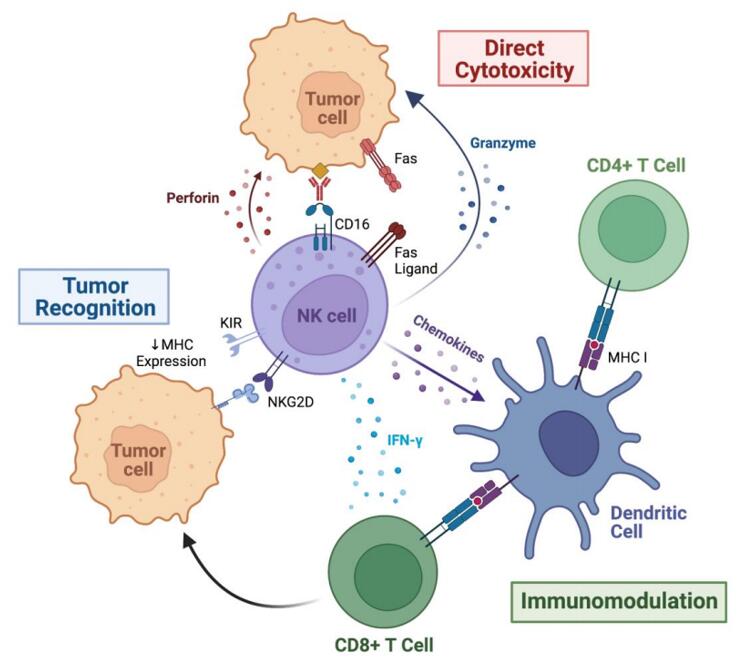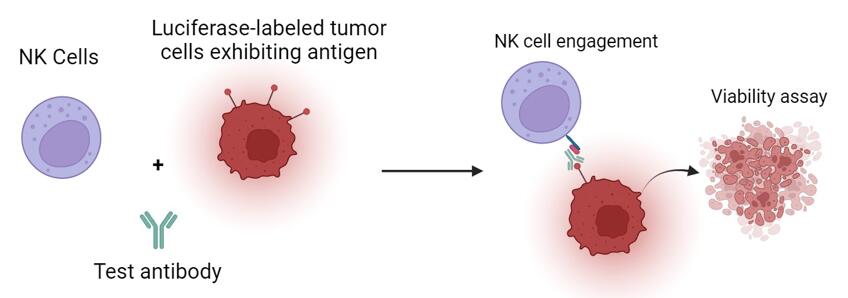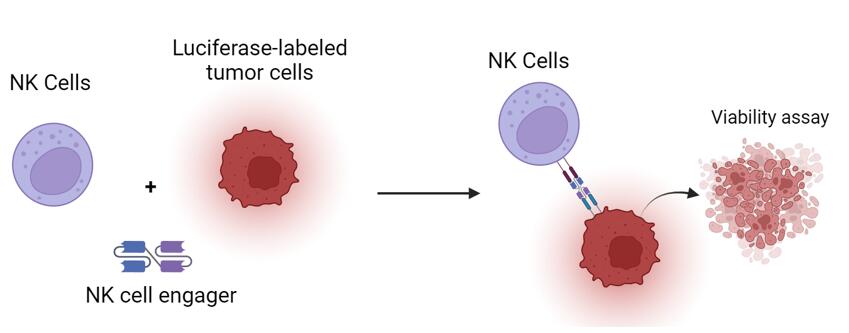NK cell-mediated tumor killing refers to the process by which natural killer (NK) cells recognize and eliminate cancer cells in the body. NK cells are a type of immune cell that play a critical role in immune surveillance against tumor development.
NK cells can directly kill cancer cells through a process called cytotoxicity. They release cytotoxic molecules, such as perforin and granzyme, that induce apoptosis (cell death) in the cancer cells. NK cells also express Fas ligand, which can bind to Fas receptors on the cancer cells, triggering apoptosis.
In addition to direct cytotoxicity, NK cells can also release immune-modulating cytokines, such as interferon-gamma (IFN-γ), which help to stimulate other immune cells and enhance the anti-tumor immune response.
 Figure 1. Mechanisms of anti-tumor recognition and cytotoxicity by NK cells.[1]
Figure 1. Mechanisms of anti-tumor recognition and cytotoxicity by NK cells.[1]
There are several strategies employed by immunotherapies to enhance the killing abilities of NK cells. These strategies aim to activate and redirect NK cells towards tumor cells, allowing them to effectively eliminate cancer cells. Some of the key strategies include:
Creative Bioarray's NK Cell-Mediated Tumor Killing assay is a cutting-edge tool designed to assess the cytotoxicity of natural killer (NK) cells against tumor cells. By providing quantitative measurements of NK cell cytotoxicity, this assay offers valuable insights into the mechanisms underlying NK cell-mediated tumor killing and aids in the development of novel therapeutic strategies for cancer treatment.


Reference:
1. Lin C, Horwitz ME, Rein LAM. Leveraging Natural Killer Cell Innate Immunity against Hematologic Malignancies: From Stem Cell Transplant to Adoptive Transfer and Beyond. Int J Mol Sci. 2022;24(1):204. Published 2022 Dec 22. doi:10.3390/ijms24010204
Online Inquiry